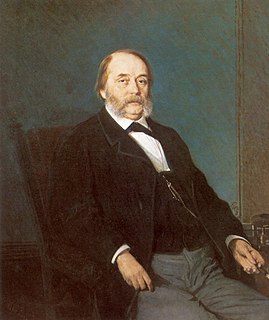A Quote by Richard Engel
Each time there is a conflict between Israel and Gaza, accusations fly over who started it, each side blaming the other.
Related Quotes
It's easy enough to predict that there will be conflict, but you place yourself in a maelstrom when you offer a view about the conflict, and I don't have an investment in one side or the other; I feel compassion for both sides. I've spent a fair amount of time in Gaza and Israel, done a lot of reporting and lived over there, and the tragedy is sometimes overwhelming. At the same time, America does have an investment in what happens.
To solve a marriage problem, you have to talk with each other about it, choosing wisely the time and place. But when accusations and lengthy speeches of defense fill the dialogue, the partners are not talking to each other but past each other. Take care to listen more than you speak. If you still can't agree on a solution, consider asking a third party, without a vested interest, to mediate.
If love exists between two persons, it is blessed. If love does not exist between two persons, then all your laws put together cannot bridge them. Then they exist separate, then they exist apart, then they exist in conflict, then they exist always in war. And they create all kinds of trouble for each other. They are nasty to each other, nagging to each other, possessive of each other, violent, oppressive, dominating, dictatorial.
I think that what started out as a European Union originally was probably a really wonderful and world-changing idea, the idea of a kind of cooperation and interdependence between countries. But the idea that individualization would work on common ground, not on conflict, not against each other, but to find how each benefitted from the other I thought was an incredibly hopeful and positive possibility.
Each side has legitimate aspirations - and that's part of what makes peace so hard. And the deadlock will only be broken when each side learns to stand in the other's shoes; each side can see the world through the other's eyes. That's what we should be encouraging. That's what we should be promoting.
When you have a conflict, that means that there are truths that have to be addressed on each side of the conflict. And when you have a conflict, then it's an educational process to try to resolve the conflict. And to resolve that, you have to get people on both sides of the conflict involved so that they can dialogue.
The Goldstone Report establishes the credibility of the accusations directed at Israel with respect to its tactics used during the 2008 - 09 attacks on Gaza, but was not able to facilitate the next step that would have involved activating accountability mechanisms either within Israel or at the level of international society.
The superpowers often behave like two heavily armed blind men feeling their way around a room, each believing himself in mortal peril from the other, whom he assumes to have perfect vision. Each side should know that frequently uncertainty, compromise, and incoherence are the essence of policymaking. Yet each tends to ascribe to the other a consistency, foresight, and coherence that its own experience belies. Of course, over time, even two armed blind men can do enormous damage to each other, not to speak of the room.
We are more often than not asked, for instance, to regard Israel and Palestine as in a conflict of this kind, a framing that sets each of them on equal footing, and implicitly analogies the political situation to a fist fight, a soccer match, or a domestic quarrel. So if, then, the only two intelligible political positions are "pro-Palestinian" or "pro-Israeli," the presumption is that one's position is determined by a sentiment that wants one side to win over the other.

































